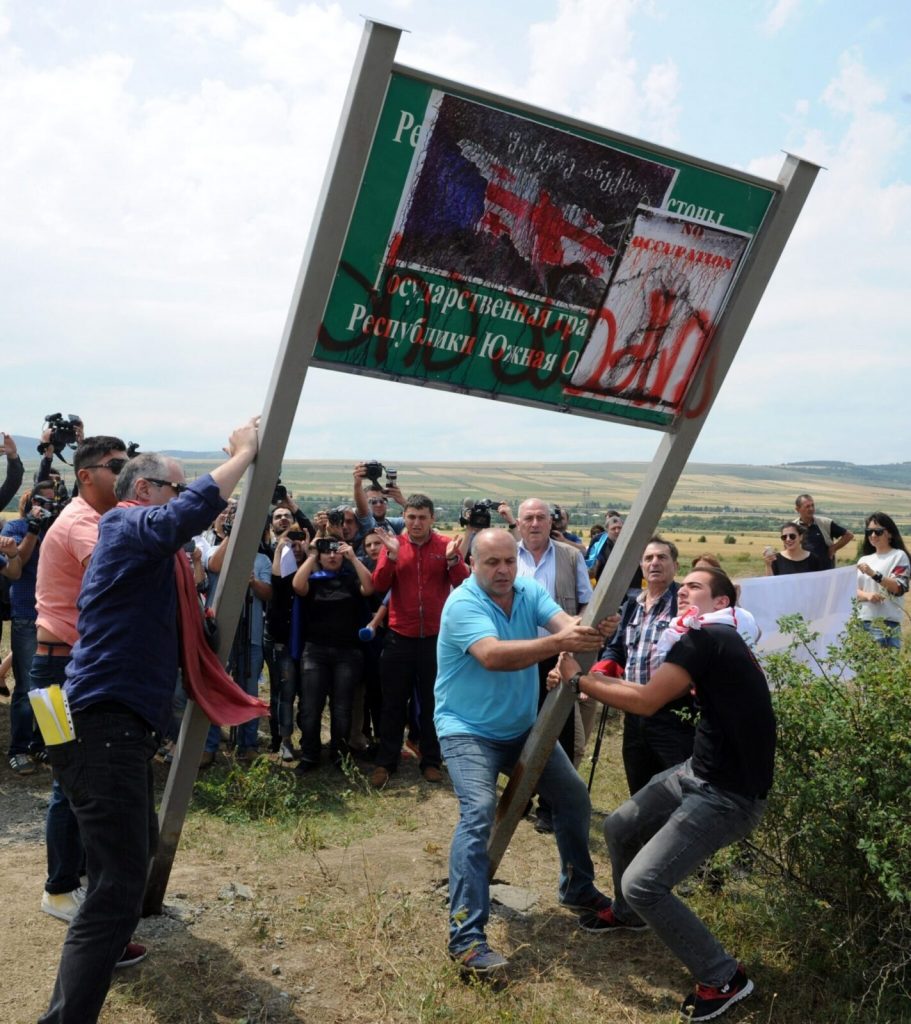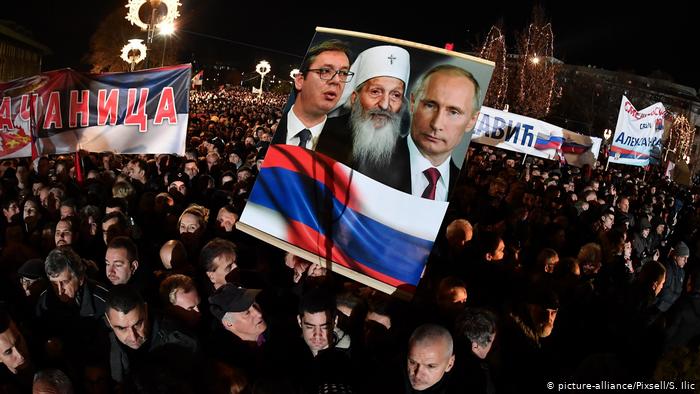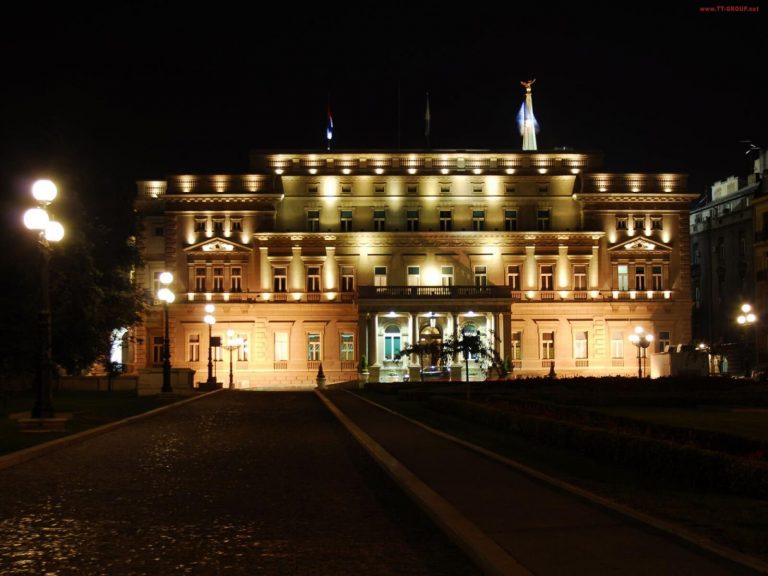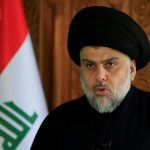Russia and Serbia aggressively support their compatriots abroad. Their approach to regulate this issue legislatively is quite similar. It reflects a strongly Orthodox martyrdom narrative.
The protection of compatriots worldwide is a pretext to implement imperial policy and territorial expansion.
Both states use diaspora-related issues as the basis of foreign policy expansion and rational military aggression. In the 1980s, Belgrade spread a ‘Great Serbia’ idea and the necessity to protect ethnic Serbs living abroad. Slovenia’s attempt (who contributed significantly into the federal budget of Yugoslavia) to obtain economic independence led to the Serbian military invasion and war. Later on, Croatia followed the same event scenario.
Ideologically Milošević’s regime filled a socialist and internationalist niche. However, after all he went a 180-degree turn and started promoting Serbian nationalism. He stated that he would not allow humiliating the Serbian people. As a result, his political course led to the Balkan war.

• The situation in Russia developed in the similar way. The fall of the Soviet Union and Russia’s inability to move towards civilized capitalist development, to stop sticking to the resource economic model, and ambitions for the Russian elite’s political and economic expansion provoked promotion of the ‘Russian World’ concept at the state level. In fact, it is an analogue of a ‘Great Serbia’ idea. ‘Great Russia’ project combines the military-political model of the Soviet Union and the Russian Empire in the context of territorial expansion, strength-positioned geopolitical leadership, and the confrontational relations with the West. Russia’s political elite, arisen during the period of the Soviet Union and supporting a clear internationalism ideology, fills a nationalism niche now. The Kremlin’s attempts to position itself as fighter against fascism is a direct consequence of the policy of ultranationalism based on the territorial belonging principle rather than ethnicity. In fact, from the political science point of view modern Russia is featured as a fascist state:
• radical imperialist political ideology,
• personality cult (Putin),
• militarism (ranks 3rd in the world’s defense expenses rating),
• totalitarism (176 out of 208 in the political and civil liberties rating),
• the idea of uniting and mobilizing the nation and state against enemies (USA, West, NATO),
• permanent war (the thesis ‘we can repeat it in the context of WWII’) and domination idea.
The Putin elite are clearly and distinctly transforming the mechanisms of public opinion consolidation into national grounds sounded like ‘Russians feel offended everywhere’. The thesis of a threat to the Russians was at the heart of the annexation of Crimea, the occupation of South Ossetia and Donbass. However, by positioning themselves as victims Russians justify their external aggression and territory expansion. For example, the incidents with Russians detained in the United States and Europe for espionage, cyber attacks and other anti-state actions is positioned by Moscow as persecution of Russians and Russophobia (Anti-Russian sentiment).

Protesters remove a border sign erected by Russian and Ossetian troops along Georgia’s de-facto border with its breakaway region of South Ossetia in the village of Khurvaleti on July 14, 2015. Georgia decried on July 14 Moscow’s “creeping annexation” of its territory after Russian border guards moved border markers further into Tbilisi-controlled area, leaving a portion of an international oil pipeline in territory under Russian control. AFP PHOTO / VANO SHLAMOV (Photo credit should read VANO SHLAMOV/AFP/Getty Images)
It is important to emphasize that prior to World War II a narrative about oppressing Germans as the reason for the country’s problems was massively spread in Germany. The National Socialists of Germany, just like the modern Russian elite, proclaimed a national revival as the target; Russia presented this very idea as ‘rising from its knees’. Sacrificial mythology justifies Russia’s nationalist policy and external aggression acts.
Serbia sticks to a similar policy with taking into account different military, diplomatic and financial capital. For example, on January 15, 2017, the official Belgrade represented by the President of Serbia Tomislav Nikolić threatened to use military force to protect the Serbs in Kosovo.
The situation on protection of compatriots by Belgrade and Moscow may receive synergy in the form of granting Russian citizenship to Serbs living on no Belgrade-controlled territories. Thus, in 2011, the Serbs tried to get Russia’s protection and security guarantee by applying for Russian passports. At that moment Moscow rejected. However, there is a possibility that the Kremlin may get back to the citizenship issue in the future to strengthen its position in the Balkans, especially, in the NATO expansion context.
Granting Russian citizenship to Serbs, for example, in Kosovo, will raise the question of Russia’s protection of the local citizens. A similar situation in South Ossetia in 2008 has already led to the occupation of the territory by Russian military forces. Russia is actively granting passports in Transnistria and the Donbas, thus laying the foundation for an official military invasion of the territories in case of political necessity.
On February 26, Vladimir Putin shared an idea of the Russian constitutional provision on protection Russian-speaking people worldwide. According to him, many people living abroad, regardless of ethnicity and nationality, are Russian (by place of birth or previous residence).Thus, Russia is trying to expand the compatriots’ protection concept to the fullest to make the reason for external invasion as clear as possible.
The Russian Federal Law on state policy regarding compatriots abroad gives an extremely broad definition of a compatriot. According to the law, a countryman may be a person who has ‘common features in language, history, cultural heritage, traditions and customs, including their descendants’. Moreover, the countrymen abroad are both citizens of the Russian Federation permanently residing abroad, emigrants and the ones who have citizenship of another country but whose ancestors lived in the Soviet Union or even the Russian Empire. Thus, the compatriot concept includes an extremely wide list of persons who may not even identify themselves with Russia.
Belgrade is following the similar approach to the diaspora. The Serbian Government Declaration proclaiming relations with countrymen and the diaspora implies not only citizens of Serbia, but also Serbs living in southeastern regions: Bosnia and Herzegovina, Slovenia, Croatia, Albania, Montenegro, Northern Macedonia, Hungary and Romania, regardless of their citizenship. According to Serbian law, if a Serb’s descendants who lived in Bosnia and who have Bosnian citizenship reside outside of Bosnia, they are considered as members of the Serbian diaspora and need to be registered in the Diaspora Register. The law rests diaspora work responsibility not only upon the government but the Serbian Orthodox Church as well. This approach coincides with the policy of Russia who uses the Russian Orthodox Church for political expansion abroad and diaspora work.

Thus, the common approach of Russia and Serbia as of compatriot protection reflects the nationalism policy implemented in these countries.




